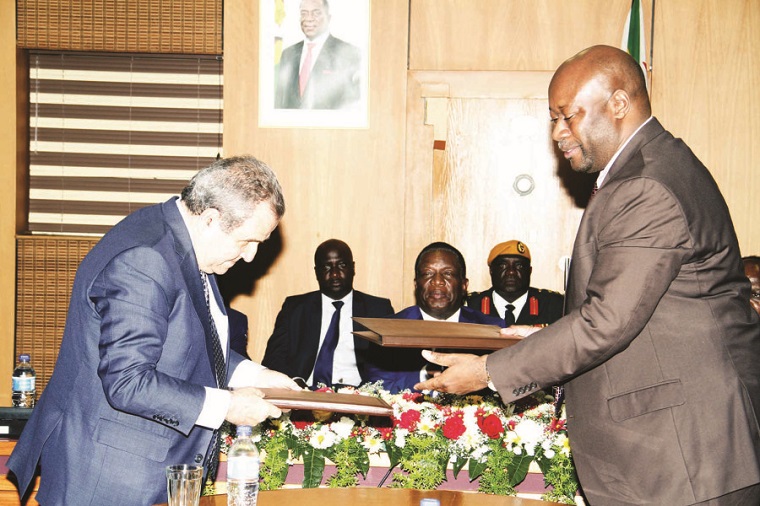President Emmerson Dambudzo (ED) Mnangagwa, who has positioned himself as a pro-business president since his November 2017 inauguration, has indicated that his ascension has coincided with an increase in investor interest in Zimbabwe.
On February 8, 2018, the Herald newspaper quoted Mnangagwa saying: “We have secured more than $3 billion in foreign direct investment in just seven weeks. We want this country to move forward. We want jobs for our children. For a start, we are addressing the production levels of agriculture where we are modernising all forms of production. We will move into modernising the processing chain.”
Addressing a church gathering in Shamva on April 25, 2018, Mnangagwa announced that investment commitments to Zimbabwe had increased to $11 billion.
The Zimbabwe Broadcasting Corporation (ZBC) quoted the President, who is routinely referred as “ED” by the local media, as saying: “For the past four months, we have been discussing and realised that investment commitments have passed $11 billion as companies are angling themselves for mutual benefit.”
The International Monetary Fund’s Balance of Payments and International Investment Position Manual (BPM6) defines foreign direct investment as international investment by an entity resident in one economy in an enterprise resident in another economy that is made with the objective of obtaining a lasting interest.
The lasting interest implies the existence of a long-term relationship between the direct investor and the enterprise and a significant degree of influence on the management of the enterprise.
Direct investment involves both the initial transaction that establishes the relationship between the two entities and all subsequent capital transactions between them and among affiliated enterprises, both incorporated and unincorporated.
According to the IMF, a direct investment enterprise is an incorporated or unincorporated enterprise in which a direct investor that is resident of another economy has 10 percent or more of the ordinary shares or voting power (for an incorporated enterprise) or the equivalent (for an unincorporated enterprise).
The direct investor may be an individual, an incorporated or unincorporated private or public enterprise, a government, or an associated group of individuals or enterprises that has a direct investment enterprise in an economy other than that in which the direct investor resides. The ownership of 10 percent of ordinary shares or voting power is the criterion for determining the existence of a direct investment relationship.
Continued next page
(166 VIEWS)







0 Comments